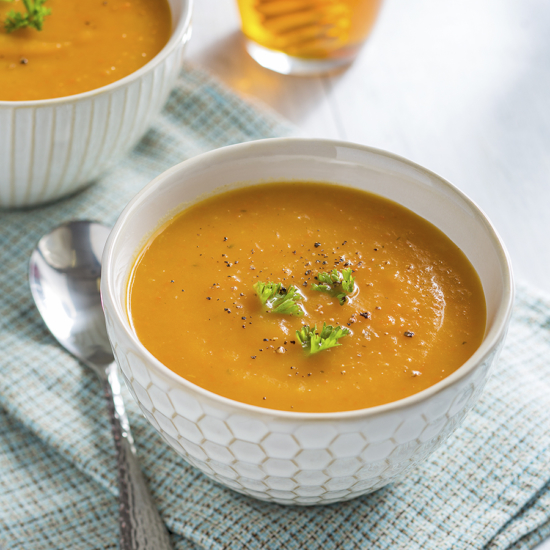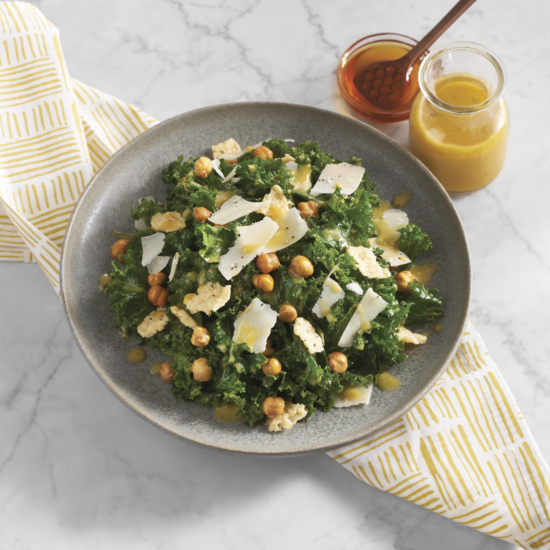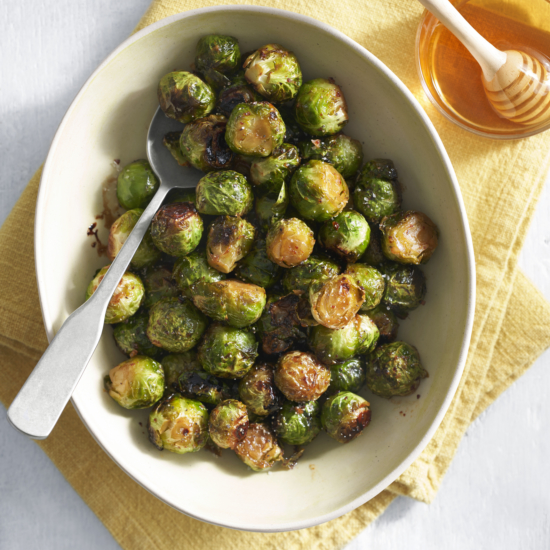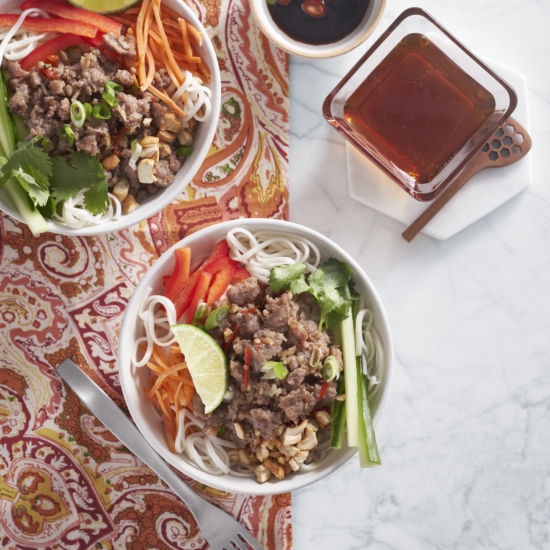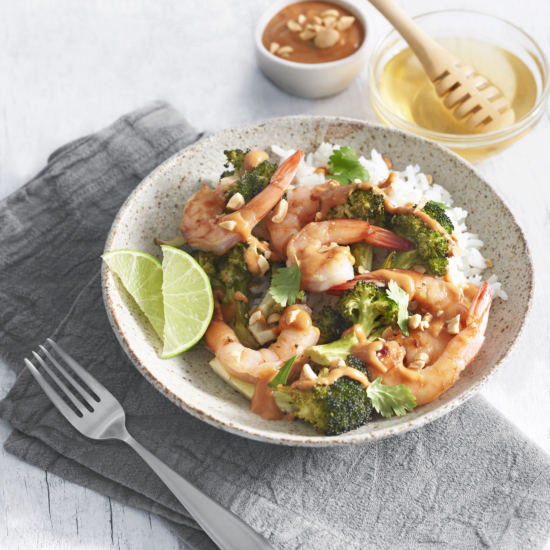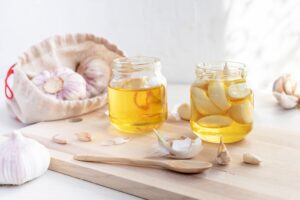
You may have seen the newest cold and flu trend making its rounds on the internet and the news cycles – of, course we’re talking about fermented honey and garlic. The #HoneyGarlic hashtag has millions of views, but is there any science to back up the claims of the power of this DIY remedy? Today we’re digging into the topic by exploring the health benefits of both garlic and honey and if they are, in fact, more powerful together.
Like honey, garlic has been used for flavoring and medicinal purposes for centuries, dating back to the dawn of historical records. According to WebMD, “[a]ncient medical texts from as far afield as Egypt, China, India, Greece, and Rome discussed the medical uses of garlic.” Fun Fact: like honey, garlic was discovered in the tomb of King Tut1! So, what is it about this potent member of the lily family (another fun fact – garlic is a member of the lily family and is related to such famous plants as hyacinths, tulips, onions, chives, and leeks)2 that makes it a go-to for home remedies? Let’s find out!
Benefits of Garlic
Good for more than just keeping away vampires (or your neighbors, if you eat too much…), garlic’s sulfur-containing compounds also have immunity-boosting benefits. While not providing much in terms of protein (0.19 g per clove, per USDA), and basically nothing in terms of fiber, sugars or fat, garlic is a source of vital nutrients like vitamins C and K, iron, potassium, zinc and magnesium3. In addition, garlic is also a source of antioxidants and prebiotics, contributing to both gut and overall immune system health4. Now, it’s hard to talk about the benefits of garlic without talking about its powerhouse compound, Allicin.
Simply put, allicin is the compound that gives garlic its instantly recognizable taste and smell and may help to ease inflammation and block free radicals. Now, a little food science – in addition to the aforementioned nutrients, garlic also contains the amino acid alliin and when you chop or crush a garlic clove, you activate an enzyme called alliinase, which then converts alliin into allicin and seems to make all kinds of magic happen. This allicin is touted for its antiviral, antifungal and antiparasitic properties1 and is even considered to be a broad-spectrum antibiotic2. It also appears that allicin may help to combat antibiotic resistance by enhancing effectiveness when taken with another antibiotic2.
Now, when considering the form of your garlic, it is said that raw is more beneficial than cooked garlic, but that supplements are the most effective1. Of course, it is recommended that you talk to your doctor before starting any kind of supplement regimen, especially if you are currently taking anticoagulants as garlic does have blood-thinning properties. If you are going to cook your garlic, there are still benefits to be had and you can maximize them by letting your chopped/crushed garlic rest for 10 minutes and adding it near the end of cooking to preserve the allicin2.
Benefits of Honey
So, why are people pairing garlic with honey? Well, honey is a bit of a superfood in its own right. In fact, research has shown that honey is a natural source of a wide array of trace amounts of vitamins, minerals, amino acids and antioxidants! Flavonoids and phenolic acids, which act as antioxidants, are found in honey, although the amount and type of these compounds depend largely on the floral source (check out more about honey’s nutritional profile). On top of that, honey may have positive effects on health including improved cardiovascular risk factors, glucose tolerance in healthy people and in people with diabetes, symptoms of cough and sleep quality in children with URTIs, prebiotics helping aid in digestive health, and other health benefits. Despite its sugar content, more health benefits for honey have been observed than null or negative effects, which suggests that honey has many benefits as part of a healthy diet5.
Now that you know the benefits of garlic and honey as individual ingredients, let’s revisit the trend that brought us here and answer the question – can fermenting garlic in honey prevent or treat your cold? Short answer – there is no scientific evidence to back up the claim. While much research has been done on each ingredient individually, we are currently unaware of any studies focused specifically on fermenting garlic in honey. Much like the idea that local honey can treat/lessen your reaction to local allergens, most of these claims are anecdotal and not scientifically backed. Of course, if you would like to give it a try, you should remember to take into account any underlying conditions you may have and your medications, particularly anticoagulants and anti-diabetes. If you have any concerns, please speak to your doctor.
Even though we don’t consume large amounts of garlic in our everyday cooking, that doesn’t mean that it can’t still be a beneficial – and delicious – addition, which is why we are sharing ten of our favorite honey + garlic recipes. We hope that you enjoy these recipes and that everyone is staying well out there!
We want to hear from you! Have you tried fermenting garlic in honey? How did it go? Tell us about your experience in the comments below.
SOURCES:
1 WebMD Editorial Contributors. (2020, October 7). Garlic: Is it good for you? WebMD. https://www.webmd.com/diet/garlic-good-for-you
2 PharmD, M. N. (2022, December 21). What is Allicin? Verywell Health. https://www.verywellhealth.com/the-benefits-of-allicin-88606
3 FoodData Central. (n.d.). https://fdc.nal.usda.gov/fdc-app.html#/food-details/169230/nutrients
4 Ldn, I. V. R. (2023, December 27). What happens to your body when you eat garlic regularly. EatingWell. https://www.eatingwell.com/benefits-of-garlic-8418100
5 Palma-Morales M, Huertas JR, Rodríguez-Pérez C. A Comprehensive Review of the Effect of Honey on Human Health. Nutrients. 2023; 15(13):3056. https://doi.org/10.3390/nu15133056





